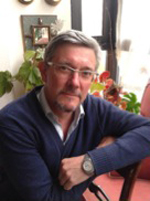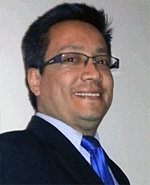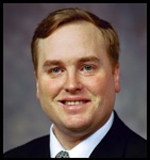The first remote lab was implemented in the middle of the 90, and it was a proof of concept. After, around 2000, more researchers started to design educational remote labs. In this decade the people interested on the remote labs are not only the technicians and the researchers, but also the users and the policy makers.
The users should not be viewed only as passive users, but also as active users. They can access the remote experiments, but also they can provide experiments to the community. And this community will not be only the schools and universities, but also the population in general. This is a new paradigm and it needs to review the remote labs from an holistic point of view.
The Go-Lab project, in which the University of Deusto is one partner, is a good example of this holistic view of the remote labs. The lessons obtained from the Go-lab project will be introduced.
 Javier García-Zubía graduated in 1987 and the PhD degree in Computers Engineering in 1996, from the University of Deusto, Spain. He is a full professor at the University of Deusto, since 1989. He has authored or co-authored +200 conference and journal papers with referee process, 7 book chapters, and co-edited three books titled“ IT Innovative Practices in Secondary Schools: Remote Experiments” (2013), "Using Remote Labs in Education" (2011) and “Advances on Remote Laboratories and e-learning experiences” (2007). He has been invited more than 15 times to give a dissertation at national and international institutions. He has also been involved in +30 national & international R&D projects. 7 are international projects: ALFA, TEMPUS, KA3, FP7th and NSF (USA). His research interests include engineering education, remote experimentation, and digital design. He served as general chair of the 9th Remote Engineering and Virtual Instrumentation conference (REV 2012) and Tecnología Aprendizaje y Enseñanza de la Electrónica (TAEE 2014), and co-chair of JENUI 2006, and also as a Program Committee member of several international conferences. He is the responsible of the Weblab-Deusto remote laboratory in the University of Deusto. He is the vice-chairman of the Spanish Chapter of the IEEE Education Society for the 2015-2017 period.
Javier García-Zubía graduated in 1987 and the PhD degree in Computers Engineering in 1996, from the University of Deusto, Spain. He is a full professor at the University of Deusto, since 1989. He has authored or co-authored +200 conference and journal papers with referee process, 7 book chapters, and co-edited three books titled“ IT Innovative Practices in Secondary Schools: Remote Experiments” (2013), "Using Remote Labs in Education" (2011) and “Advances on Remote Laboratories and e-learning experiences” (2007). He has been invited more than 15 times to give a dissertation at national and international institutions. He has also been involved in +30 national & international R&D projects. 7 are international projects: ALFA, TEMPUS, KA3, FP7th and NSF (USA). His research interests include engineering education, remote experimentation, and digital design. He served as general chair of the 9th Remote Engineering and Virtual Instrumentation conference (REV 2012) and Tecnología Aprendizaje y Enseñanza de la Electrónica (TAEE 2014), and co-chair of JENUI 2006, and also as a Program Committee member of several international conferences. He is the responsible of the Weblab-Deusto remote laboratory in the University of Deusto. He is the vice-chairman of the Spanish Chapter of the IEEE Education Society for the 2015-2017 period.
The European Commission has funded, through different programmes such as FP6, FP7 and H2020, several high-performance testbed facilities towards empowering telecommunications research in academia and industry. Such a wide range of experimentation facilities provides cutting-edge technologies, from optical networks to wireless communication technologies, for research within the Future Internet and Research Experimentation (FIRE) initiative. The explosive growth of online learning technologies and, in particular, the rise of remote laboratories for education, enables the use of such research facilities for technology-enhanced learning purposes. The FP7 project FORGE (Forging Online Education through FIRE) has developed a framework that exposes the testbed facilities in an easy manner for remote experimentation that can be integrated into both traditional classroom-based and online learning courses. Moreover, FORGE facilitates the use of those federated facilities by providing widgets, adapters, and courses that can be used/reused anywhere around the world and delivered through different platforms, such as tablets, laptops, PCs or smartphones. This talk will present an overview of such facilities, the FORGEBox framework and its components. Furthermore, it will cover the methodology for using such free resources and to create new courses using FORGE remote labs. Finally a roadmap for adapting experimentation from research to education will be discussed.
 Johann M. Marquez-Barja is a Research Fellow in CONNECT / the telecommunications research centre at Trinity College Dublin, Ireland. He has studied in USA, Bolivia, Cuba and Spain. He holds a Systems Engineering degree (graduated with honors), an MSc. on Telematics and a PhD on Architecture and Technology of Computer Systems, issued by the Universitat Politecnica de Valencia, Spain (graduated with honors cum laude, and currently nominated for the 2015 UPV Post-Thesis award). Within Trinity College Dublin, he is conducting research on future wireless networks. He also lectures on wireless networks and communications, fostering remote experimentation within the Master’s program in Electronic and Electrical Engineering, where he combines his research expertise with education methodologies, in particular technology- enhanced learning techniques. In 2002 he was awarded the Professor of the Year Award by the IDEAS College in Bolivia. In CONNECT, he is one of the lead persons for the cloud-based cognitive wireless testbed facility, which supports research and education; the facility was a finalist in The Irish Laboratory Award 2014 in the education category. Dr Marquez-Barja is involved in several European projects related to remote experimentation on FIRE facilities, such as Fed4FIRE, CREW and FORGE, and he is the FORGE project dissemination leader. Johann is a member of the IEEE Communications Society as well as the IEEE Education Society, where he participates in the Standards Committee and contributes to the IEEE P1876 Networked Smart Learning Objects for Online Laboratories standard working group.
Johann M. Marquez-Barja is a Research Fellow in CONNECT / the telecommunications research centre at Trinity College Dublin, Ireland. He has studied in USA, Bolivia, Cuba and Spain. He holds a Systems Engineering degree (graduated with honors), an MSc. on Telematics and a PhD on Architecture and Technology of Computer Systems, issued by the Universitat Politecnica de Valencia, Spain (graduated with honors cum laude, and currently nominated for the 2015 UPV Post-Thesis award). Within Trinity College Dublin, he is conducting research on future wireless networks. He also lectures on wireless networks and communications, fostering remote experimentation within the Master’s program in Electronic and Electrical Engineering, where he combines his research expertise with education methodologies, in particular technology- enhanced learning techniques. In 2002 he was awarded the Professor of the Year Award by the IDEAS College in Bolivia. In CONNECT, he is one of the lead persons for the cloud-based cognitive wireless testbed facility, which supports research and education; the facility was a finalist in The Irish Laboratory Award 2014 in the education category. Dr Marquez-Barja is involved in several European projects related to remote experimentation on FIRE facilities, such as Fed4FIRE, CREW and FORGE, and he is the FORGE project dissemination leader. Johann is a member of the IEEE Communications Society as well as the IEEE Education Society, where he participates in the Standards Committee and contributes to the IEEE P1876 Networked Smart Learning Objects for Online Laboratories standard working group.
Dr. Meier will discuss an on-going flipped classroom experience he is implementing at his university. This flipped classroom experience places traditional first-year computer engineering students into an active-learning model supported by pre-class videos, remote laboratory equipment, and a structured social media interaction timeline that encourages crowdsourced solutions to engineering challenges implemented on the remote laboratory equipment. A number of educational research questions are being investigated.
First, the flipped classroom model has been used for decades within the distance learning community but is now also slowly gaining traction in the traditional on-campus model of instruction as modern media technology allows professors to easily record instructional material that students watch before their in-class mentorship time. This content is supported either by cloud-based services such as youTube or private servers located on the university campus. The professor is then freed to use class time for hands-on critical thinking exercises designed using the well-studied techniques of project-based and active learning. But does a flipped classroom harm or improve content retention? Does pre-recorded video diminish the mentor role by decreasing classroom authority? Or, is mentorship enhanced because instructors provide richer mentorship during in-class activities when compared against a passive lecture?
Second, at most universities, design education is supported by a rich set of laboratory exercises that allow students to gain construction, debug, and design verification skills. Often, these laboratories are rigidly controlled with equipment access limited only to class times where an instructor is present. But, what if students were allowed to complete robust design challenges from their dorm rooms using remote laboratories accessible through the internet? Would flipping the laboratory and providing more realistic design challenges on remote equipment provide a more engaging type of study that encourages and deepens student learning?
Finally, can social media be effectively leveraged with remote laboratories as a mechanism to crowdsource a solution to a design challenge? Social media has become an integral part of life and is used pervasively by most traditional engineering students that between the ages of 18 to 24 years old. Research has shown that appropriate use of social media can be used as part of educational content delivery provided that professors don't intrude too deeply into the student social media space. Appropriately timed design challenges introduced through social media can encourage teamwork as crowdsource behavior works toward a solution. But, does that crowdsourced teamwork result in increased knowledge retention? Or does the use of social media isolate people that might otherwise be highly engaged in more traditional classroom focused project-based learning?
This keynote address will introduce the flipped-classroom and flipped-laboratory educational model, the remote laboratory that supports the model, the social media timeline, and initial numerical results on student learning and satisfaction.
 Dr. Meier will discuss an on-going flipped classroom experience he is implementing at his university. This flipped classroom experience places traditional first-year computer engineering students into an active-learning model supported by pre-class videos, remote laboratory equipment, and a structured social media interaction timeline that encourages crowdsourced solutions to engineering challenges implemented on the remote laboratory equipment. A number of educational research questions are being investigated.
Dr. Meier will discuss an on-going flipped classroom experience he is implementing at his university. This flipped classroom experience places traditional first-year computer engineering students into an active-learning model supported by pre-class videos, remote laboratory equipment, and a structured social media interaction timeline that encourages crowdsourced solutions to engineering challenges implemented on the remote laboratory equipment. A number of educational research questions are being investigated.
First, the flipped classroom model has been used for decades within the distance learning community but is now also slowly gaining traction in the traditional on-campus model of instruction as modern media technology allows professors to easily record instructional material that students watch before their in-class mentorship time. This content is supported either by cloud-based services such as youTube or private servers located on the university campus. The professor is then freed to use class time for hands-on critical thinking exercises designed using the well-studied techniques of project-based and active learning. But does a flipped classroom harm or improve content retention? Does pre-recorded video diminish the mentor role by decreasing classroom authority? Or, is mentorship enhanced because instructors provide richer mentorship during in-class activities when compared against a passive lecture?
Second, at most universities, design education is supported by a rich set of laboratory exercises that allow students to gain construction, debug, and design verification skills. Often, these laboratories are rigidly controlled with equipment access limited only to class times where an instructor is present. But, what if students were allowed to complete robust design challenges from their dorm rooms using remote laboratories accessible through the internet? Would flipping the laboratory and providing more realistic design challenges on remote equipment provide a more engaging type of study that encourages and deepens student learning?
Finally, can social media be effectively leveraged with remote laboratories as a mechanism to crowdsource a solution to a design challenge? Social media has become an integral part of life and is used pervasively by most traditional engineering students that between the ages of 18 to 24 years old. Research has shown that appropriate use of social media can be used as part of educational content delivery provided that professors don't intrude too deeply into the student social media space. Appropriately timed design challenges introduced through social media can encourage teamwork as crowdsource behavior works toward a solution. But, does that crowdsourced teamwork result in increased knowledge retention? Or does the use of social media isolate people that might otherwise be highly engaged in more traditional classroom focused project-based learning?
This keynote address will introduce the flipped-classroom and flipped-laboratory educational model, the remote laboratory that supports the model, the social media timeline, and initial numerical results on student learning and satisfaction.